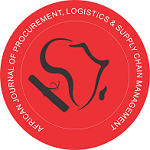William Akoto Oppong
Department of Procurement, Business University of Costa Rica
School of Finance & Financial Management
Email: waoppong@gmail.com
Abstract
Procurement has been mainly a back office function which uses buyer power to achieve lower prices. Traditionally, procurement was focused on price, confrontation between supplier and buyer, short-term relationship between buyer and seller, and surface-level, short-sighted consideration of seller’s operations. By contrast, the alternative to traditional-style procurement is to go beyond narrow focus on price to include supplier and buyer collaboration, long-term relationship between supplier and buyer, and long-term in-depth consideration of supplier’s operations to the extent that procurement now is a collaborative enterprise between buyer and supplier. Procurement is a strategic tool that can create value. This thesis addresses the underlying principles in selecting a procurement strategy and the factors that shape procurement practices and trends. The research is based on a general survey of the relevant literature, case-studies of 21 companies operating in 9 industries[1], i.e. Aerospace, Apparel/ Footwear, Automotive, Computers, Communications Equipment, Consumer Packaged Goods, Pharmaceuticals, Petroleum and Retail, and interviews with industry consultants. In order to better understand the commonalities and the differences among the practices, this thesis introduces a cross industry framework. Additionally, a three step framework developed to link the underlying principles with what is considered best organizational practices.
Keywords: Analysis of Sourcing, Procurement Practices, Procurement Industry Framework,

